How much does it cost to run an electric blanket? Experts reveal how expensive they are – the costs might surprise you
Wondering how much an electric blanket will set you back when it comes to running costs be it for a couple of hours, or throughout the night?

- Is it cheaper to use an electric blanket or heating?
- How can I cut the cost of running an electric blanket?
- How much does it cost to run an electric blanket for 12 hours?
- How much does it cost to run an electric blanket for 1 hour?
- FAQ
- Do electric blankets use a lot of electricity?
- Do electric blankets save money?

Katie Sims
There’s nothing cosier than snuggling up into a bed warmed by an electric blanket. But as we keep an ever-watchful eye on our energy bills, many of us have been asking, how much does it cost to run an electric blanket?
It's easy for the best electric blankets to become one of our most-used appliances in winter. Fitted beneath the best sheets to warm up the bed, they essentially act as a warm hug for us to curl into at the end of the day. Nowadays, there are also electrically heated throws that you can wrap around yourself or lay across your lap to make the rest of your home feel cosy.
But before we start using our beloved electric blankets every night, it's important to find out how much they're going to contribute to our energy bills. Or if you're still wondering whether to invest in one, knowing the running costs might help you make up your mind.
We've caught up with energy experts and asked the question, how much does it cost to run an electric blanket, plus whether they're more cost-effective than using central heating. All in the name of helping you make the best choices for your home - and your wallet - this winter.
How much does it cost to run an electric blanket?
According to our team of energy experts, the cost of running an electric blanket is actually not that expensive at all, especially in comparison to other options for staying warm at home.
However, like every electrical appliance, the cost of running an electric blanket will vary depending on how much power yours uses – e.g. its wattage. These are the same principles when calculating how much it costs to run a dehumidifier.
On every respective blanket, this shouldn't vary too wildly (they'll typically sit between 100W and 150W), but it will differ, especially if you have a larger blanket.
Sign up for the woman&home newsletter
Sign up to our free daily email for the latest royal and entertainment news, interesting opinion, expert advice on styling and beauty trends, and no-nonsense guides to the health and wellness questions you want answered.
For example, a king-size electric blanket will have a higher power rating, and be more expensive to run than a single electric blanket.
To work out the cost of your specific electric blanket, or the one you have your eye on, you’ll first need to find how much power it uses. "You need to find out the wattage on its various different settings; you will usually find this information in a manual, on the box, or on the manufacturer's website," advises Marie Urmston, energy expert at Love Energy Savings.
As mentioned, this number will be in wattage measurements, so will look something like ‘100W’ or ‘200W’.
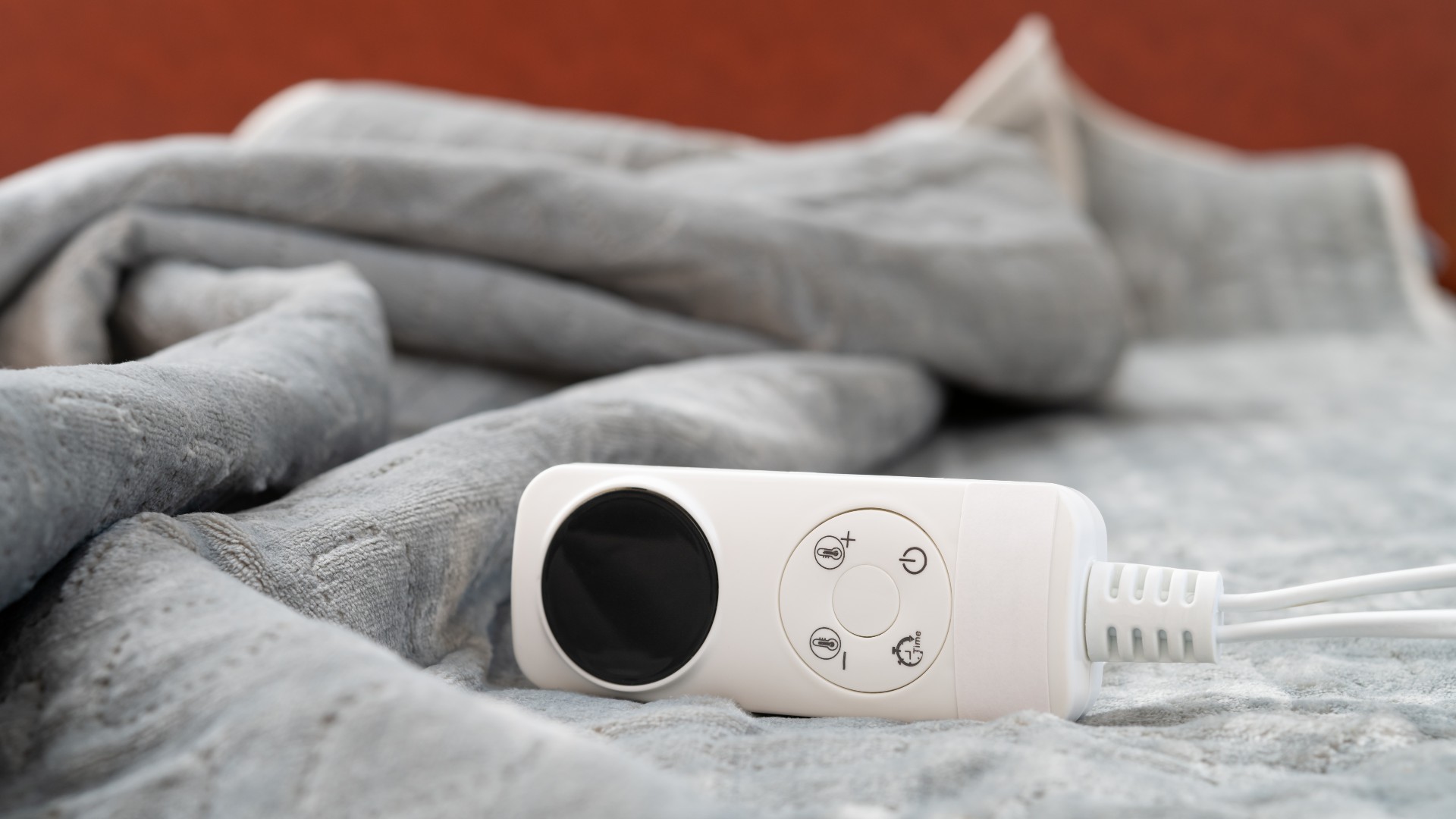
You’ll then need to consider how long you intend to use your blanket. While some prefer to put theirs on for a few hours before bed to warm it up, others like to sleep with an electric blanket on. Whatever your preference, it’s important to be realistic about how long you will run your electric blanket daily, to get an accurate indication of its running costs.
Once you have this information, there's an easy calculation to follow to work out the cost of your specific electric blanket. As of 1st October 2024, the energy price cap has decreased from 27p per kWh to 24.5p per kWh (this rate will stay in effect until 31st December 2024).
'As such, these are the numbers we need to work out the cost per use: kWh (you'll need to divide this number by 1000 to get the correct unit) X Run Time (in hours) X Cost (£) per kWh (at the moment, 24.5p),' Marie says.
To demonstrate this calculation, Marie uses an example electric blanket. 'I've used the Silentnight Comfort Control Electric Blanket Topper as an example. Based on the highest heat setting the blanket has, the wattage for a single size is 40, a double size is 70W, and a king-size wattage is 90W.
How much does it cost to run an electric blanket, then? Marie says, 'Here’s how much each size of this blanket costs to run for eight hours a night:
- Single: 0.04 x 8 x 0.25 = 0.08 (8p per night)
- Double: 0.07 x 8 x 0.25 = 0.14 (14p per night)
- King: 0.09 x 8 x 0.25 = 0.18 (18p per night)'
As you can see, the cost to run an electric blanket is pretty minimal, less than how much it costs to run an air fryer for example– but don’t forget that this running cost will increase should your electric blanket have a higher power rating.
For example, this 150W Dreamland heated blanket will cost you a little bit more given its increased wattage; for eight hours of nighttime use, it'll set you back about 30p.
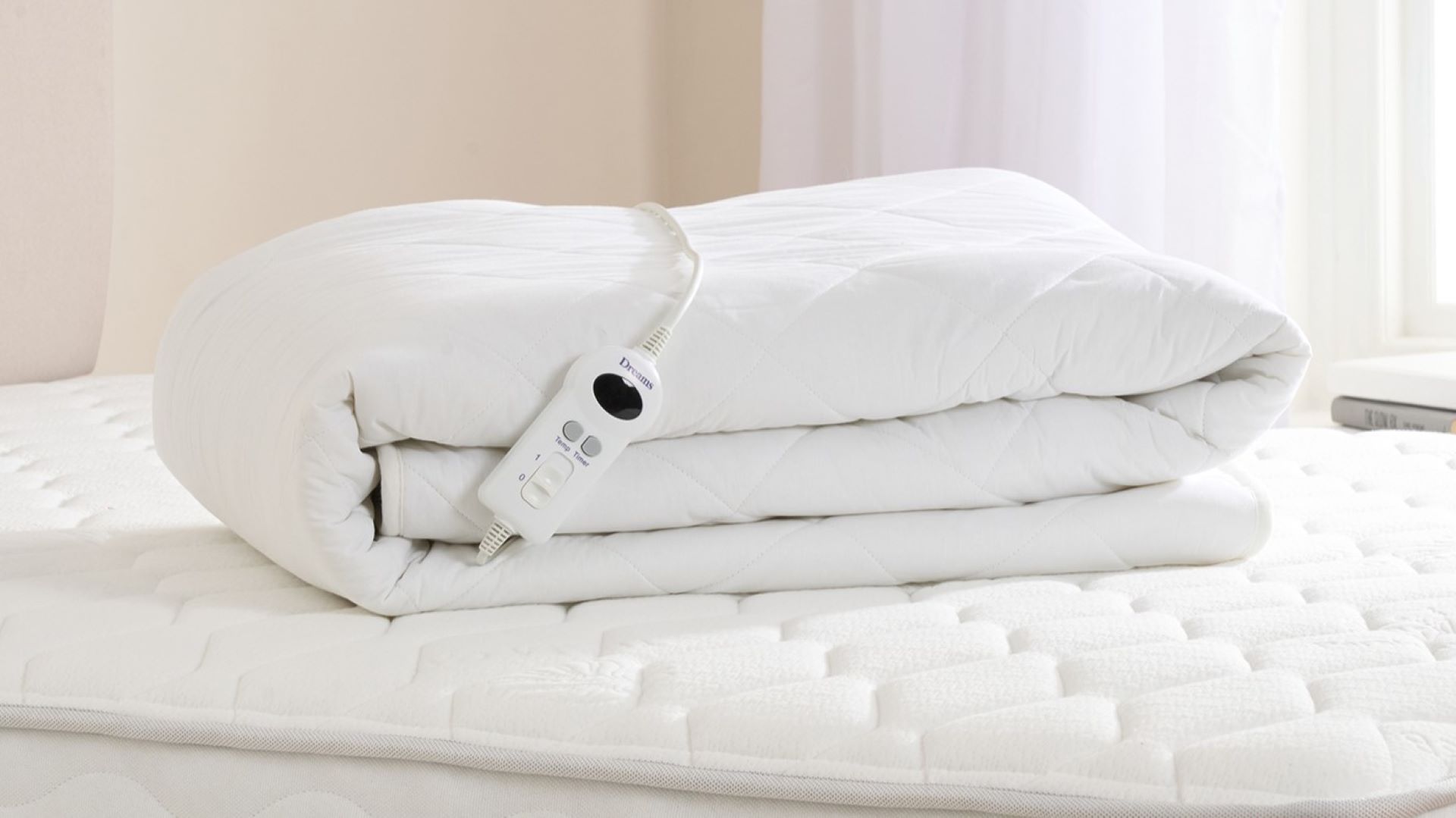
If you only want to use this blanket to warm up your bed for a few hours before you go to sleep – let's say for four hours – it's going to cost around 15p per night, which is £1.05 per week, and £4.65 in a 31-day month.
Assunta Trano, Product Expert at Dreamland notes that lots of electric blankets on the market are usually incredibly affordable to run. "Many throws/blankets can cost as little as 1p per hour to run,' says Assunta. 'So if you were to use it for a period of eight hours, it would cost just 8p."
Is it cheaper to use an electric blanket or heating?
"Based on the current price cap of 25p per kilowatt of energy, a typical electric blanket costs up to 4p per hour to run," says Les Roberts, an energy expert at Bionic. 'For 12 hours of use, this is just shy of 50p.
"In comparison, central heating costs around £1.70 per hour, totalling just over £20 for 12 hours of use, which makes it appear far more expensive than using an electric blanket."
Side by side, the cost of running an electric blanket is therefore much cheaper than using central heating. However, an electric blanket is not a sufficient substitute for central heating if you're warming up the whole house; it will only provide heat in a localised area.
"Central heating warms the entire home, ensuring all occupants are comfortable and helping to prevent issues such as condensation, mould, or some health problems," Les explains. "Electric blankets, on the other hand, are a cost-effective way to stay warm, especially for those who spend most of their time in one room or need a localised heating solution."
So, if you're planning on staying in one room for a significant period of time, it will be cheaper to plug your electric blanket in than switch the heating on. But it's still advisable to use your heating in winter - even sporadically - to prevent issues like condensation on windows, which will eventually lead to mould.
How can I cut the cost of running an electric blanket?
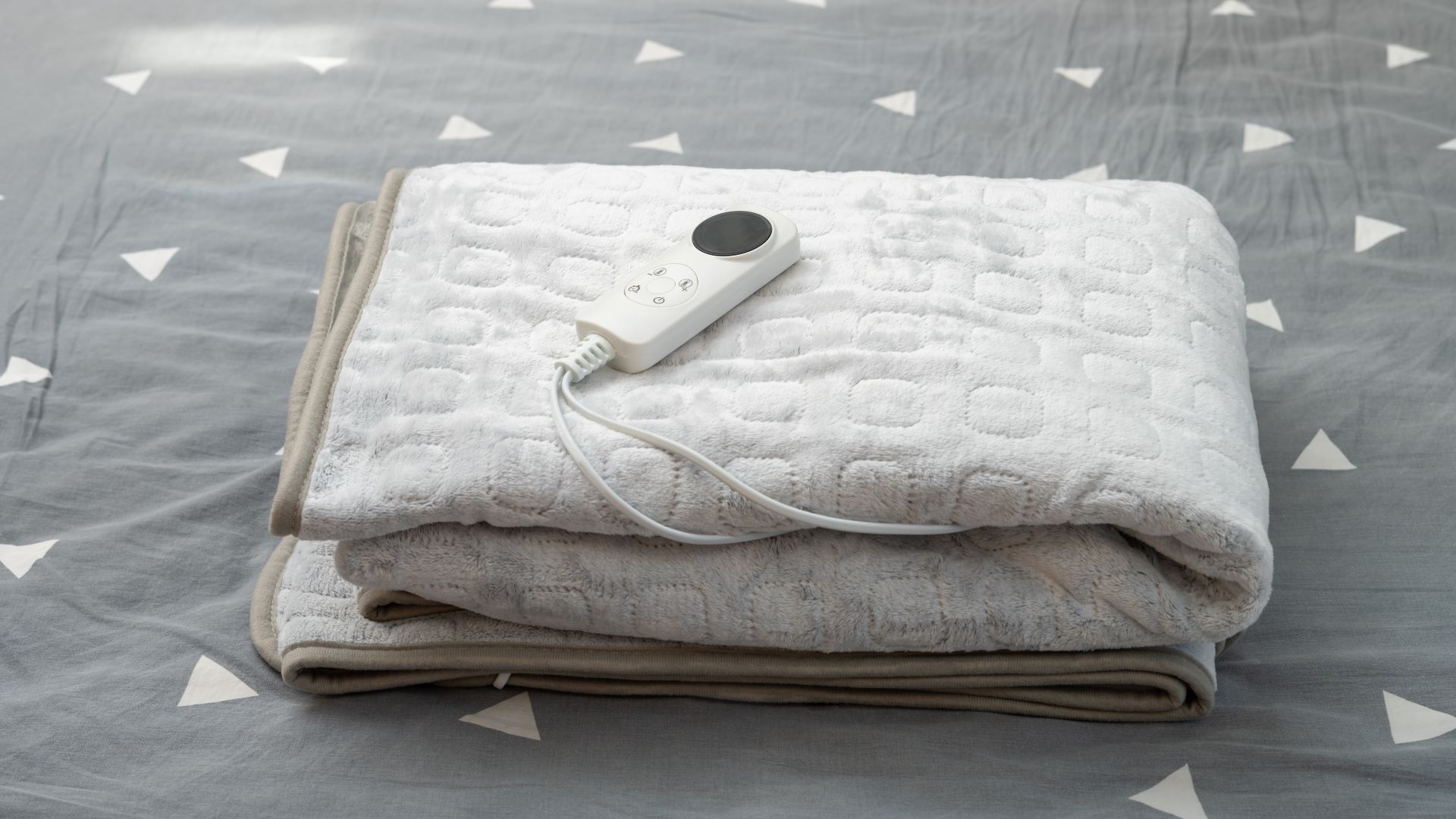
Just as there are cost-saving swaps to save energy in the home daily, there are things you can do to keep electric blanket running costs to a minimum. Ideally, invest in a model that has a built-in timer, so you can set it to run for four, six, or eight hours depending on your preference. This will stop you from leaving the blanket switched on when it doesn't need to be.
Most modern models should have automatic shut-off features, whereby the device will turn itself off before it starts to overheat. Again, this will prevent you from wasting unnecessary pennies.
Ideally, you should also pick an electric blanket where you can adjust the temperature. "Turning down the temperature of your electric blanket is one of the most efficient ways of lowering its cost," the experts at Confused.com energy explain. "This is because the blanket consumes the most electricity when heating up, and then will usually reduce its power usage as it regulates heat."
If you're using an electric blanket to create a cosy bed set-up, we recommend combining this with one of the best mattress toppers, plus a weighted blanket for extra layers and warmth. "Then put the blanket on for a couple of hours at a lower temperature before going to sleep, and then switch it off once you’re in bed," advise the energy experts at Confused.com. "This will warm up your bed, and avoid the cost of running the blanket overnight."
How much does it cost to run an electric blanket for 12 hours?
Concerning the most recent energy price cap change, a typical electric blanket would cost around 45p to run for 12 hours. This is based on a device with a wattage of 150, which tends to be the higher end of the scale. Some electric blankets (especially single-sized) can use as little as 40 watts, and these would only cost 12p to run for 12 hours. That's 1p per hour!
The experts at Confused.com energy add: "The cost to run an electric blanket for 12 hours will depend on the type of blanket you’re using, its energy rating, and the type of energy tariff you are on."
Remember, you can use the equation explained above to work out the cost of running your own electric blanket. Just divide the device's wattage by 1000 to get the kWh, then multiply this by 12 (for the number of hours), and finally, multiply this figure by 0.25 (which is the current price of energy in the U.K.). You can use this formula to work out the cost of running a heated clothes airer, and pretty much any electrical appliance.
How much does it cost to run an electric blanket for 1 hour?
How much does an electric blanket cost to run for just one hour then? It's clear that running most models for just 60 minutes at a time won’t set you back too much money – in fact, Marie explains, "based on the calculation above and the product, one hour would cost 1p for a single, 1.9p for a double, and 2.4p for a king."
For most standard electric blankets with an average power rating of between 100W and 150W, it’s unlikely to cost you more than a few pence to run for 60 minutes.
James Longley, Managing Director at Utility Bidder explains, "Although they do vary, a standard 100W blanket will generally cost between 2p and 4p to run at full power for one hour. This means that for a couple of hours before going to sleep it would cost between 4p and 8p to warm up your bed."

James Longley is the Managing Director of Utility Bidder, and supports the growth of the company, overseeing business operations. He is an experienced Director with a long history working in the utility and energy industry.
But as mentioned, the cost of running your specific electric blanket will need to be calculated, in order to get a true picture of its running costs for an hour, as you may have a model that uses a lot more power (or less) per hour.
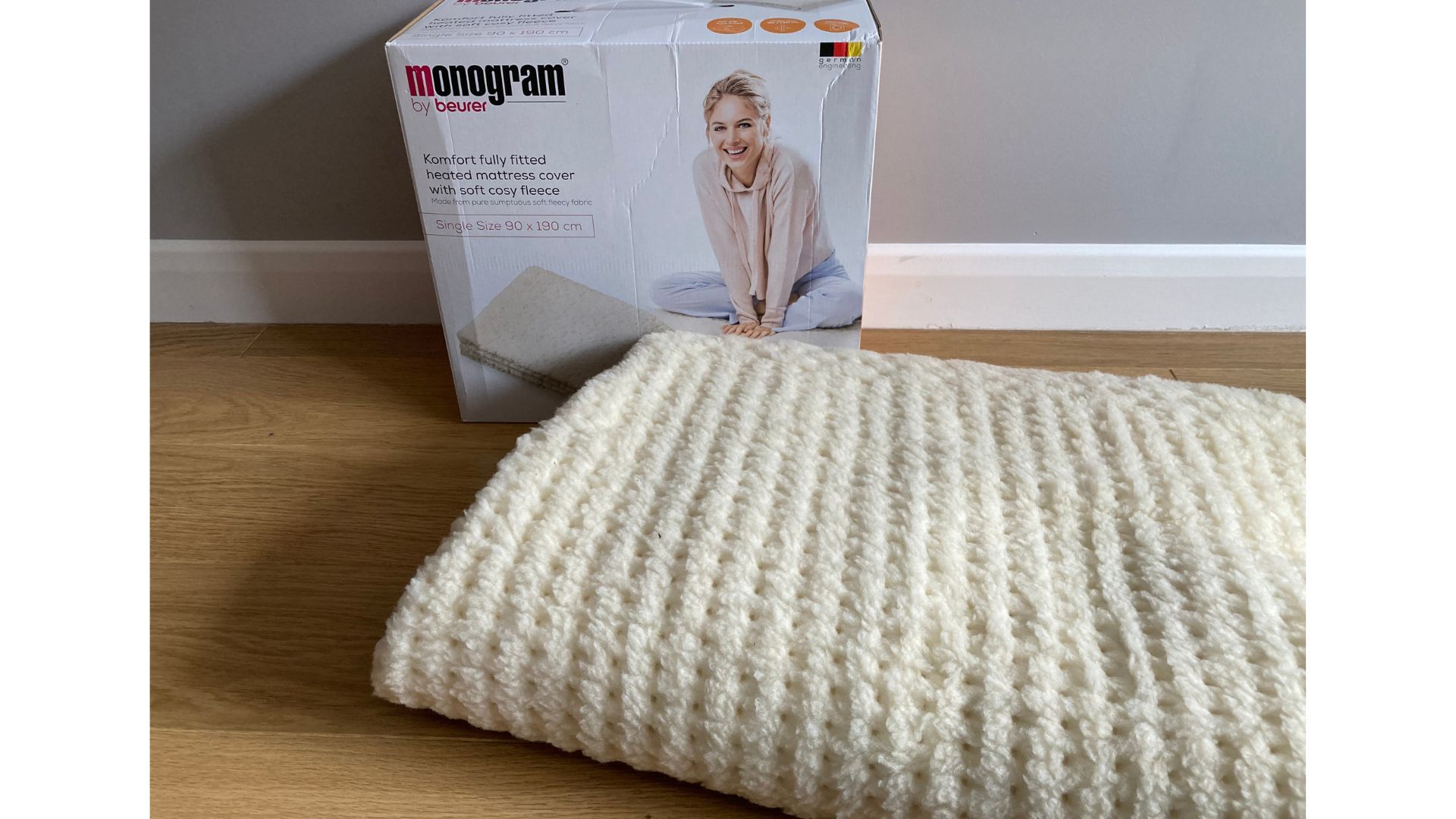
An electric blanket used during our testing to determine the best electric blankest currently on the market
FAQ
Do electric blankets use a lot of electricity?
No, as evidenced above, electric blankets won’t use up much electricity at all, especially if you only have yours on for a couple of hours when sleeping.
This all depends on the blanket you own, or are planning to buy. For example, if you use your electric blanket for long periods of time in the highest setting, it will inevitably use up more electricity.
Ben Dhesi, the creator of the energy-saving app HUGO, explains that different types of electric blankets will use up more, or less electricity depending on how you use them.
"Some will have a temperature setting that you can adjust to increase or decrease the temperature; using a comfortable but not excessively high setting can help save energy," Ben explains. "Larger blankets also traditionally use more electricity to heat, but that’ll be reflected in their wattage."
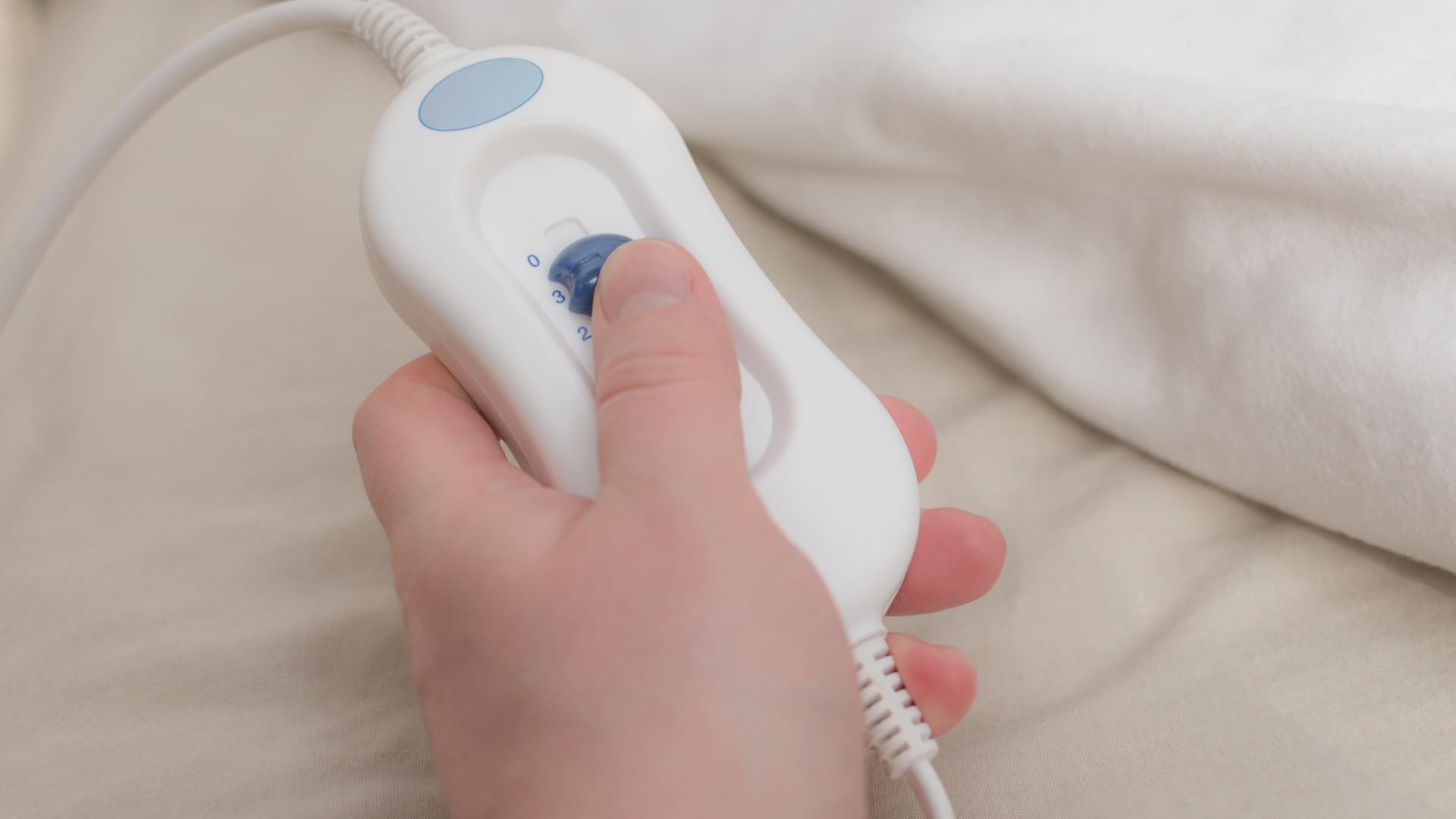
Marie also argues that an electric blanket’s electricity usage should be matched against the cost of leaving your heating on during a chilly night, in order to keep your house warm whilst in bed. "When using an electric blanket, you're effectively heating yourself only, and not your entire house, so less energy is consumed based on the proximity."
"As such, using an electric blanket could allow you to set a lower heat setting on your thermostat (or even allow you to turn it off), saving you more money," she says.
Then, of course, there are other heating alternatives to consider, which can be pretty intense electricity guzzlers. "For example, electric blankets use very little electricity compared to room heaters," James points out.
"In comparison to the 2-4p an electric blanket uses an hour, an electric heater will cost 61p per hour to heat up your whole room."
It’s clear then which option will use the least electricity whilst also keeping you toasty and warm.
Is it expensive to keep an electric blanket on all night?
After determining if you can sleep with an electric blanket on next you'll then be wondering if it's expensive to do so. If your electric blanket costs around 2-4p per hour to run, it's unlikely that keeping yours on all night is going to be overly pricey, although it is an expense to keep an eye on if you're being cautious with your energy bills during the cost of living crisis.
Say, for example, that you sleep for eight hours per night, and have your electric blanket on for the entire time you are in bed. This means the blanket should cost around 16p (based on the average cost of running an electric blanket for an hour) for the entire time you are sleeping, which feels like a very reasonable price for staying warm in the coldest winter evenings.
Even heating your bed up with the electric blanket for two hours before heading to sleep should only cost a couple of pence more.
If you struggle with cold temperatures during the night, as mentioned, an electric blanket is far cheaper than the alternatives to keeping warm when in bed. In terms of electric blankets vs heated throws, the latter is ideal for use around the house and on the sofa, but electric blankets should always be the first choice for a toasty sleep set-up.
Do electric blankets save money?
If you tend to get quite chilly during the night or during the evenings whilst relaxing on the sofa, an electric blanket can come in very handy – and yes, it seems that using one really can save you money, especially when compared to the costs of using your central heating instead.
An electric blanket costs very little to run, even if left on for hours. Given that they offer direct heating rather than general heating of your home, they can prove to be a much more sensible option financially for getting warm than having your heating on or using a standalone electric heater.
"Even on the lower settings, in conjunction with lowering your thermostat, using a heated blanket in the winter months could save you money," Marie agrees.
"Your home heating accounts for around 62% of your annual energy bill (as per the Home Energy Saving Guide), so any way you can reduce that percentage will definitely help."
James agrees, concluding for anyone that is unsure, "Overall, electric blankets are very economical and highly cost-effective to run."
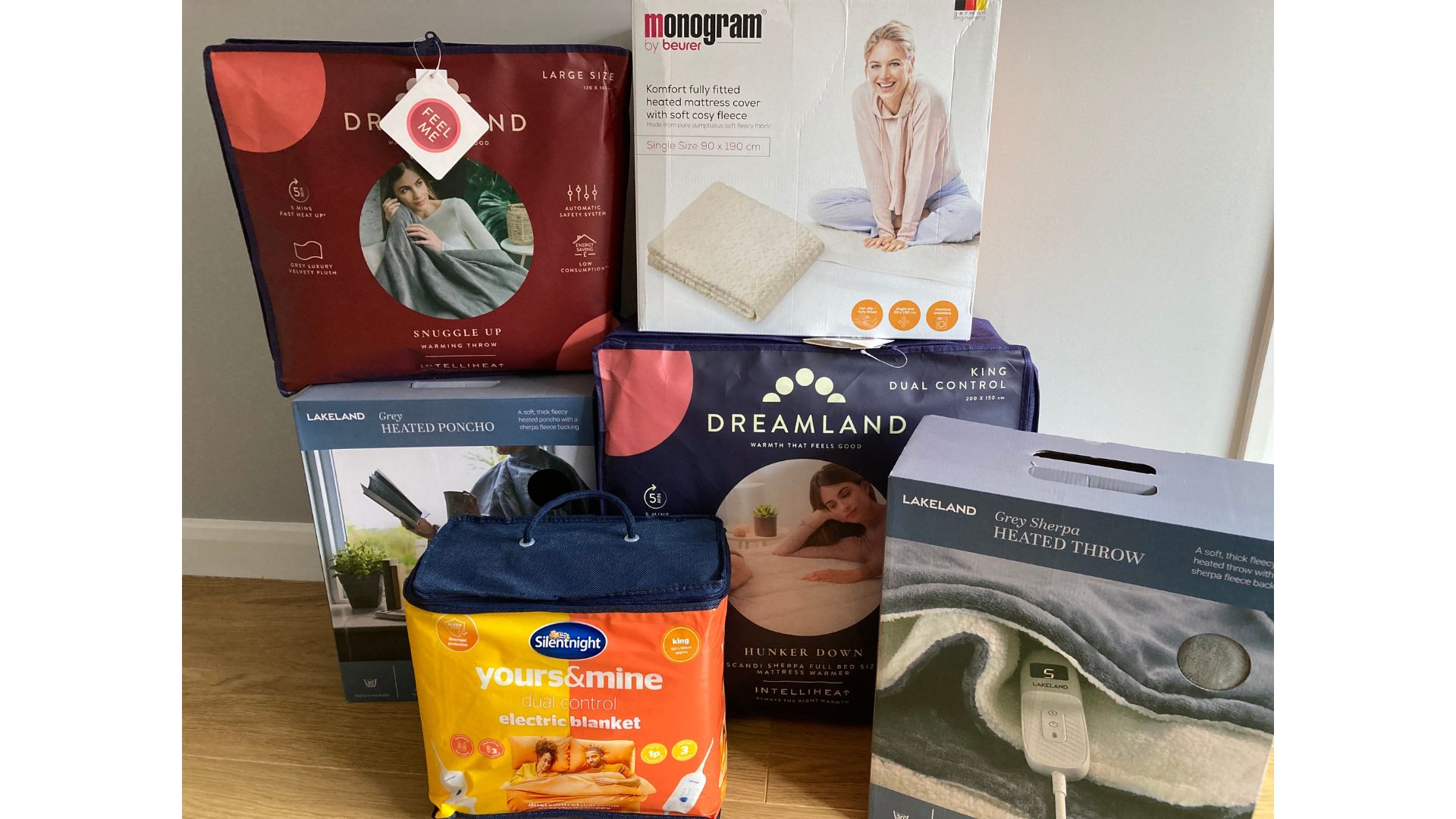
If you don't already own an electric blanket, it’s also important to consider the initial purchase cost if you’re weighing up the financial implications of using one. Though this will obviously require one larger upfront expense, James urges that electric blankets can be fairly affordable to buy – and you shouldn’t have to re-purchase one anytime soon.
"Electric blankets can vary in price, with some starting from £30 - £150 depending on brand and size – but many of them can last up to a staggering 10 years." Plus, there are usually plenty of Black Friday electric blanket deals around at this time too, if you're looking to make it an even more affordable buy.
Amy Hunt is an experienced digital journalist specialising in homes, interiors and hobbies. She began her career working as the features assistant at woman&home magazine, before moving over to the digital side of the brand where she eventually became the Lifestyle Editor up until January 2022. Amy won the Digital Journalist of the Year award at the AOP Awards in 2019 for her work on womanandhome.com.
- Katie SimsContributor
-
 Le Creuset has taken the gold standard literally — their 100 year launch features real gold and an iconic designer collaboration
Le Creuset has taken the gold standard literally — their 100 year launch features real gold and an iconic designer collaborationLe Creuset have turned 100 years old and to celebrate they have launched a new colour — Flamme Dorée — as well as a coffee table book with designers Assouline
By Laura Honey Published
-
 This chic, Brazillian perfume brand is our beauty team's secret to smelling expensive and unique
This chic, Brazillian perfume brand is our beauty team's secret to smelling expensive and uniqueFrom salty accords to modern twists on tuberose, there's a Granado perfume for every preference - but these 9 blends have our heart...
By Naomi Jamieson Published